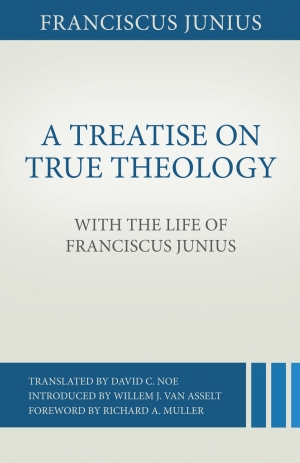Since the Second Great Awakening, in the 19th century, modern evangelical theology, piety, and practice has come to be dominated by various species of what are really expressions of the original Anabaptist theology, piety, and practice in the sixteenth century. They were . . . Continue reading →
QIRE
I Have Not Seen Miracles Here: Between Pentecost And The Parousia
And suddenly there came from heaven a sound like a mighty rushing wind, and it filled the entire house where they were sitting. And divided tongues as of fire appeared to them and rested on each one of them. And they were . . . Continue reading →
The Fluid Line Between Revivalism And The Cults In Nineteenth-Century American Religion
To most Millerites, Ellen’s visions were simply another manifestation of the unfortunate religious drift of the times toward “fanaticism.” Early 19th-century America abounded with”prophets” of every description, from little-known frontier seers in Ellen Harmon’s own Methodist Church to prominent sectarian leaders. Mother . . . Continue reading →
Heidelberg 65: Faith, Union With Christ, And The Means Of Grace (2)
65. Since then we are made partakers of Christ and all His benefits by faith only, whence comes this faith? The Holy Spirit works faith in our hearts by the preaching of the Holy Gospel, and confirms it by the use of the . . . Continue reading →
The Difference Between Sola Scriptura And Biblicism
The Reformation solas (by grace alone, through faith alone, according to Scripture alone) are not well understood today. Yesterday, however, was the anniversary of Luther’s famous declaration at the Diet of Worms. Although already under ban for his teachings, Charles V had promised . . . Continue reading →
Pietists And Rationalists Together
Some of theologians of the era tended toward pietism or, among the Dutch Reformed, toward the Nadere Reformatie, and many evidenced affinities for the newer rationalist philosophies. Continue reading →
It Doesn’t Have To Be This Way
Why do evangelicals become Romanists, Eastern Orthodox, or Anglo-Catholics, i.e., Anglicans who identify more with Rome than with the historic Protestant Anglican confession (e.g., the Thirty-Nine Articles and the Anglican Catechism)? Al Mohler reflected recently on a Wall Street Journal story on . . . Continue reading →
“Divine Winds” And Gay Elders: Where The QIRE Leads
The church has long been tempted to use a canon opener since the late 2nd century. As it became clear that the great acts of redemption were complete, that God’s special revelation had ended, the Montanist movement reacted by claiming to receive . . . Continue reading →
Heidelberg 53: We Believe In The Holy Spirit (1)
53. What do you believe concerning the Holy Spirit ? First, that He is co-eternal God with the Father and the Son. Secondly, that He is also given to me, by true faith makes me a partaker of Christ and all His . . . Continue reading →
Now In English: Junius On True Theology
Lambert Daneau (1530–95) described Franciscus Junius as “a man of singular learning”—and that he was. His biblical scholarship was cited widely by writers from a variety of traditions in the sixteenth and seventeenth centuries. His influence on the Reformed tradition has been . . . Continue reading →
Sectarians: Socinians, Arminians, And Pietists
By the end of the seventeenth century, there was a sense that sectarian groups – a list that included Socinians and Arminians, as well as Pietists — were increasingly establishing themselves throughout Europe to the detriment of true Christianity. As Elisée Géraud . . . Continue reading →
Is The Christian Life More Like Colorado Or Nebraska?
For most of my conscious life I have listened to other Americans complain about having to drive across Nebraska on I-80. As soon I tell non-Nebraskans that I am a Cornhusker they have two comments: 1. Your football team isn’t what it . . . Continue reading →
Good Old Fashioned Subjectivist Goo
In the 1920’s, J. Gresham Machen diagnosed not only the intellectual and theological drift of his day but of that which would continue to develop over the next 90 years. He wrote, The depreciation of the intellect, with the exaltation in the . . . Continue reading →
Providence: God’s Active, Almighty, Present Power (2)
In the previous post we considered what it means to say “I believe in God the Father almighty. One of the most scurrilous things that some neo-Pentecostalists have alleged against the historic Christian view of God is that we are Deists. Quite . . . Continue reading →
The Difference Between Reformed And Revived
So the “reformed” and the “revived” make two different kinds of determination when they look for Reformation and revival. Proponents of revival make claims that should be reserved for God, that is, whether a soul has truly come to new life in . . . Continue reading →
The Addiction to Religious Euphoria
Mark Galli (HT: Alex Webster) has an interesting story in CT Online about the power of religious euphoria. He likens the attraction to, indeed the addiction to euphoria to attraction and addiction to a drug. Galli writes: We disdain faith that is . . . Continue reading →
The Disturbing Narrative Of Phebe Bartlet
She once of her own accord spake of her unsuccessfulness, in that she could not find God, or to that purpose. But on Thursday, the last day of July, about the middle of the day, the child being in the closet, where . . . Continue reading →
“Did God Leave Me When I Went To Seminary?”
Ryan at Sola Gratia raises a question that many first-semester seminary students ask. In essence the question is this: Before I came to seminary I had an active devotional life and a vital, immediate, experience of God and now things have changed. . . . Continue reading →
Everyone Is Subject To The QIRE
On a recent trip I began James D. Bratt’s, terrific new biography of Abraham Kuyper (1837–1920), Abraham Kuyper: Modern Calvinist, Christian Democrat. I knew (or thought I knew) the outlines of Kuyper’s life but there was an aspect that I did not . . . Continue reading →
Heidelcast 23: Ecstasy is Not Christianity
Concern about dead formalism or ritualism is legitimate but we should not think that because a religious service is emotionally or psychologically satisfying or that because one has a certain kind of ecstasy that one has escaped dead formalism. There is a . . . Continue reading →














